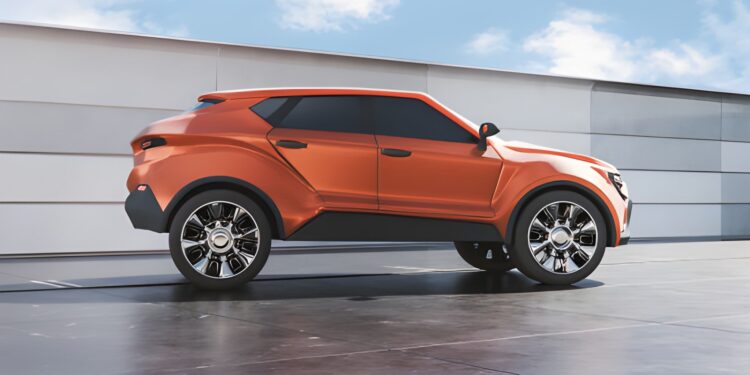When it comes to choosing a vehicle, one of the most important factors to consider is its size. Vehicle sizes affect various aspects of your driving experience, from how much space you have inside to how easily you can park it. A larger vehicle may offer more comfort, especially for families, but it can be more challenging to drive in busy areas or park in tight spaces. On the other hand, smaller cars are easier to maneuver and park but may not have the same amount of interior space. Therefore, understanding the dimensions of different vehicles is crucial. You need to think about what fits your lifestyle best. For example, if you live in a busy city, a compact car may be more suitable due to its smaller size, while a larger SUV or truck may be necessary if you need to transport large items or go on long road trips. In this article, we will explore why vehicle sizes matter, how to compare them, and what factors to consider before making your decision. By the end, you will have a better understanding of how vehicle dimensions play a role in your overall driving experience.
Why Vehicle Size Matters
Vehicle size is important for a variety of reasons. First and foremost, it affects how comfortable you feel inside. Larger vehicles, such as SUVs or trucks, offer more space for passengers, which is ideal for families or long road trips. However, bigger vehicles may also have a higher fuel consumption, meaning you’ll spend more money on fuel. Smaller cars, while more fuel-efficient, often have less interior space, which can make them uncomfortable for long drives. Another factor affected by size is the vehicle’s ability to fit in certain parking spaces. Smaller vehicles are easier to park, especially in crowded cities or tight parking lots. But larger vehicles may struggle to find adequate parking or may require a bigger garage. Additionally, vehicle size can impact how a car handles on the road. Larger vehicles may be better for rough terrains or towing heavy loads, while smaller ones are easier to control in everyday driving situations. The size of the vehicle also affects its safety features. Generally, larger cars offer more protection in accidents. Therefore, it is important to consider these factors when choosing a vehicle that suits your specific needs.
Types of Vehicle Sizes
Vehicles come in different sizes, each serving a specific purpose. Understanding these sizes will help you choose the one that best fits your needs. Here’s a breakdown of the most common types of vehicles:
- Compact Vehicles – These are smaller cars, perfect for city driving. They are great for those who need something easy to park and fuel-efficient.
- Midsize Vehicles – These offer a balance between comfort and efficiency, making them ideal for families or anyone who needs a bit more space than a compact car.
- Full-size Vehicles – These vehicles provide a lot of space for passengers and cargo but come at the cost of increased fuel consumption. They are perfect for longer trips or for those who need extra room.
- SUVs and Crossovers – These vehicles are larger than midsize cars and offer plenty of cargo space and higher driving position, making them great for outdoor activities or rougher roads.
- Trucks – Trucks are built for heavy-duty work, such as hauling or towing. They are much larger in size, offering greater payload capacity but with less fuel efficiency.
Each vehicle size offers unique benefits, so choosing the right one depends on your personal requirements, such as the amount of space you need and how much fuel you are willing to use.
How to Compare Vehicle Sizes
Comparing vehicle sizes is an important step before making a purchase. When you compare sizes, you not only look at the overall dimensions but also consider how those sizes affect the vehicle’s performance. Online tools, such as those provided by vehiclesizes.com, allow you to input different models and instantly see how they measure up against each other. These tools make it easier to compare vehicles side by side, showing you the length, width, height, and other important dimensions. Additionally, some websites let you compare interior space, which is essential for families or anyone who plans to use their vehicle for long trips. By using comparison tools, you can also compare how much cargo space is available, how many people can comfortably sit inside, and how well the vehicle can handle different terrains. This gives you a clear picture of which vehicle fits your needs the best. Ultimately, comparing sizes is essential to making an informed choice, helping you avoid buying a vehicle that might be too large or small for your daily needs.
Vehicle Size Comparison Benefits
Comparing vehicle sizes provides numerous advantages. Here are some key benefits:
- Helps you find the right vehicle for your needs – By comparing sizes, you can ensure that you choose a vehicle that fits your lifestyle.
- Simplifies the decision-making process – Comparison tools allow you to narrow down your options by highlighting the key differences in size.
- Avoids buying a vehicle that’s too big or too small – You don’t want to end up with a car that is hard to park or doesn’t have enough space for your family.
- Saves time and money – When you compare vehicles, you are more likely to make a purchase that you will be happy with long term.
- Makes your driving experience more comfortable – The right-sized vehicle can make your daily commute easier and more enjoyable.
By using online tools, you can easily find the size that suits your requirements. These tools can save you time and energy, ensuring you make a more informed decision.
How Vehicle Size Affects Performance
The size of a vehicle has a significant impact on its performance. Larger vehicles, such as trucks and SUVs, are generally more powerful and can handle rough terrain or heavy loads better than smaller cars. However, they tend to use more fuel and are more difficult to maneuver in tight spaces. On the other hand, smaller vehicles are usually more fuel-efficient, which can save you money in the long run. They are also easier to handle, especially in urban settings where there are narrow streets and limited parking. Here’s how size affects various performance factors:
- Fuel Efficiency – Larger vehicles often consume more fuel, while smaller ones offer better mileage.
- Handling – Smaller vehicles are easier to drive and park, especially in cities.
- Safety – Bigger cars tend to offer more protection in case of accidents, although modern smaller cars are also designed with safety in mind.
- Towing Capacity – Trucks and larger vehicles are better suited for towing heavy items, while smaller cars lack this capability.
- Cargo Space – Larger vehicles can carry more items, which is useful if you need to transport goods regularly.
Understanding how vehicle size affects performance can help you choose a car that best fits your needs and driving habits.
Tools for Vehicle Size Comparison
If you’re unsure which vehicle size is right for you, using comparison tools can simplify the decision-making process. Websites like vehiclesizes.com allow you to easily compare the dimensions of different models visit for more detials https://www.vehiclesizes.com/compare/. These tools let you input specific vehicle details and compare everything from the length to the weight and interior space. You can also check out how a vehicle fits in standard parking spots or how much trunk space it provides. Many websites even offer side-by-side comparisons, which visually show how each vehicle stacks up against others. This is especially useful if you are comparing multiple vehicles at once and need to see the differences quickly. Moreover, some tools even include additional features like safety ratings or user reviews, giving you a more complete understanding of each model. By using these tools, you can save time and make a smarter, more informed decision about which vehicle is right for you.
Final Thoughts on Vehicle Size Selection
Choosing the right vehicle size is important for comfort, performance, and safety. Whether you’re looking for a compact car for city driving or a full-size truck for heavy-duty tasks, understanding the size of a vehicle will help you make the right decision. A larger vehicle may provide more space but could be harder to maneuver or park. On the other hand, smaller vehicles are often easier to drive and park, though they may lack the space or towing capacity of larger vehicles. Ultimately, by considering your needs, such as passenger space, cargo capacity, and fuel efficiency, you can find the perfect fit. Don’t forget to use online comparison tools like vehiclesizes.com to make your decision-making process easier. Remember, the right size vehicle will provide you with the best driving experience, making it easier to go about your daily activities.
Final Words
In conclusion, understanding vehicle sizes and how to compare them is a key part of choosing the right car. By considering how size affects factors like fuel efficiency, handling, and comfort, you can make an informed choice. Tools like vehiclesizes.com are a great way to compare different models side by side, helping you find the perfect vehicle for your needs. Whether you’re purchasing a new vehicle or just exploring options, understanding vehicle sizes ensures that your next car is the best fit for you.





